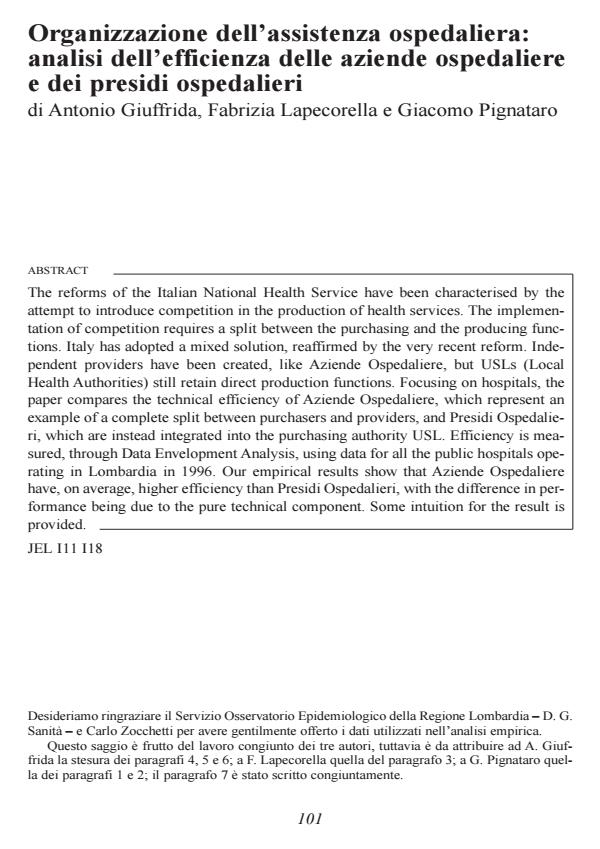Organizzazione dell'assistenza ospedaliera: analisi dell'efficienza delle aziende ospedaliere e dei presidi ospedalieri
Journal title ECONOMIA PUBBLICA
Author/s Antonio Giuffrida, Fabrizia Lapecorella, Giacomo Pignataro
Publishing Year 1 Issue 2000/4
Language Italian Pages 24 P. File size 79 KB
DOI
DOI is like a bar code for intellectual property: to have more infomation
click here
Below, you can see the article first page
If you want to buy this article in PDF format, you can do it, following the instructions to buy download credits

FrancoAngeli is member of Publishers International Linking Association, Inc (PILA), a not-for-profit association which run the CrossRef service enabling links to and from online scholarly content.
The reforms of the Italian National Health Service have been characterised by the attempt to introduce competition in the production of health services. The implementation of competition requires a split between the purchasing and the producing functions. Italy has adopted a mixed solution, reaffirmed by the very recent reform. Independent providers have been created, like Aziende Ospedaliere, but USLs (Local Health Authorities) still retain direct production functions. Focusing on hospitals, the paper compares the technical efficiency of Aziende Ospedaliere, which represent an example of a complete split between purchasers and providers, and Presidi Ospedalieri, which are instead integrated into the purchasing authority USL. Efficiency is measured, through Data Envelopment Analysis, using data for all the public hospitals operating in Lombardia in 1996. Our empirical results show that Aziende Ospedaliere have, on average, higher efficiency than Presidi Ospedalieri, with the difference in performance being due to the pure technical component. Some intuition for the result is provided.
Antonio Giuffrida, Fabrizia Lapecorella, Giacomo Pignataro, Organizzazione dell'assistenza ospedaliera: analisi dell'efficienza delle aziende ospedaliere e dei presidi ospedalieri in "ECONOMIA PUBBLICA " 4/2000, pp , DOI: